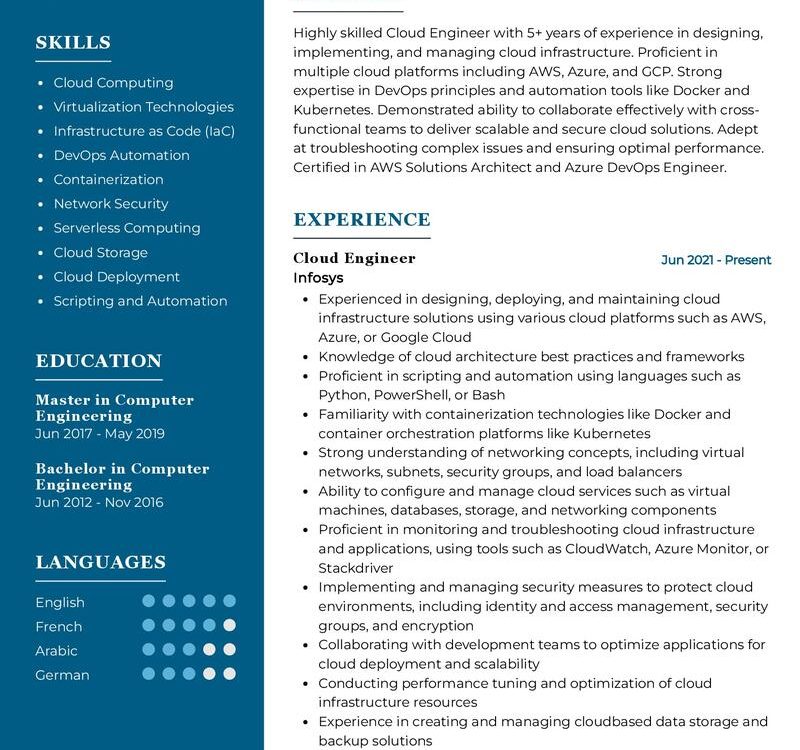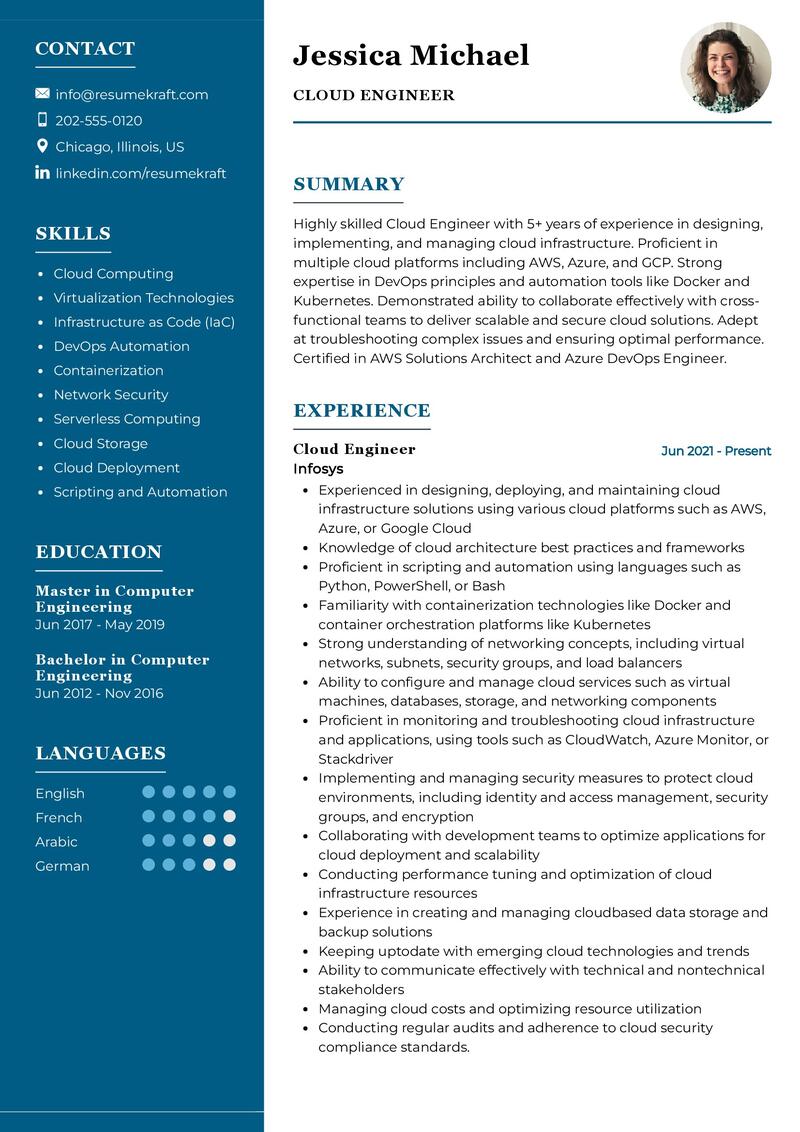Exploring the Role of a Cloud Engineer
With the rapid advancement of technology, the role of a Cloud Engineer has emerged as a crucial component in modern businesses. This position blends technical expertise with strategic thinking to design, implement, and maintain cloud infrastructure. Let’s delve deeper into the multifaceted role of a Cloud Engineer, a profession that is reshaping the digital landscape.
Key Responsibilities of a Cloud Engineer
A Cloud Engineer is tasked with a diverse set of responsibilities aimed at optimizing cloud infrastructure and ensuring seamless operations. Here are some key responsibilities of a Cloud Engineer:
- Designing and implementing cloud solutions tailored to meet the organization’s needs.
- Managing and maintaining cloud infrastructure to ensure optimal performance and scalability.
- Implementing security best practices to safeguard data and resources stored in the cloud.
- Collaborating with cross-functional teams to integrate cloud services into existing systems.
- Monitoring cloud performance and troubleshooting issues to minimize downtime.
- Automating processes to streamline operations and improve efficiency.
- Staying updated with the latest cloud technologies and trends to drive innovation within the organization.
Each responsibility plays a vital role in ensuring the smooth functioning of cloud infrastructure and maximizing its potential to drive business growth.
Skills Required for a Cloud Engineer
Becoming a successful Cloud Engineer requires a diverse skill set encompassing technical expertise, problem-solving abilities, and strong communication skills. Here are some essential skills for aspiring Cloud Engineers:
Technical Skills:
- Proficiency in cloud computing platforms such as AWS, Azure, or Google Cloud Platform.
- Experience with infrastructure as code (IaC) tools like Terraform or CloudFormation.
- Knowledge of networking concepts including VPNs, subnets, and load balancers.
- Familiarity with containerization technologies like Docker and container orchestration tools such as Kubernetes.
- Understanding of security best practices for cloud environments, including identity and access management (IAM) and encryption.
Soft Skills:
- Strong problem-solving skills to identify and address technical challenges.
- Excellent communication skills to collaborate effectively with team members and stakeholders.
- Ability to work well under pressure and adapt to changing priorities in a fast-paced environment.
- Attention to detail to ensure accuracy and reliability in cloud deployments.
- Continuous learning mindset to stay updated with evolving cloud technologies and best practices.
Combining these technical and soft skills is essential for excelling in the role of a Cloud Engineer and driving successful cloud initiatives within an organization.
How to Become a Cloud Engineer
Embarking on a career as a Cloud Engineer requires a combination of education, hands-on experience, and continuous learning. Here’s a step-by-step guide to becoming a Cloud Engineer:
- Earn a bachelor’s degree in computer science, information technology, or a related field to build a strong foundation in computer science principles.
- Gain experience in IT roles such as system administration, network engineering, or software development to develop practical skills.
- Obtain relevant certifications from cloud providers such as AWS Certified Solutions Architect, Microsoft Certified: Azure Administrator, or Google Cloud Certified Professional Cloud Architect.
- Participate in cloud-related projects and initiatives within your organization to gain hands-on experience with cloud technologies.
- Continuously expand your knowledge through self-study, online courses, and participation in cloud communities and forums.
By following these steps and staying committed to learning and growth, you can pave the way for a successful career as a Cloud Engineer.
Conclusion
As businesses increasingly rely on cloud technology to drive innovation and agility, the role of a Cloud Engineer has become indispensable. By designing, implementing, and managing cloud infrastructure, Cloud Engineers play a crucial role in enabling organizations to harness the full potential of cloud computing. With the right combination of technical skills, problem-solving abilities, and continuous learning mindset, aspiring Cloud Engineers can embark on a rewarding career path in this dynamic field.
Finally, feel free to utilize resources like AI Resume Builder, Resume Design, Resume Samples, Resume Examples, Resume Skills, Resume Help, Resume Synonyms, and Job Responsibilities to create a standout application and prepare for the Cloud Engineer job interview.


